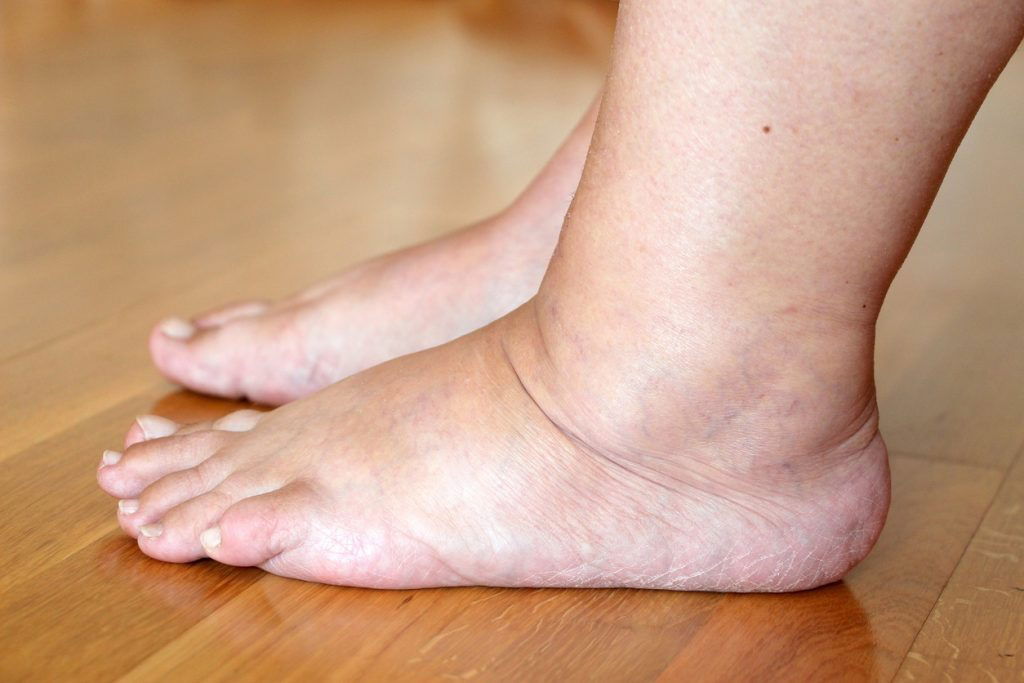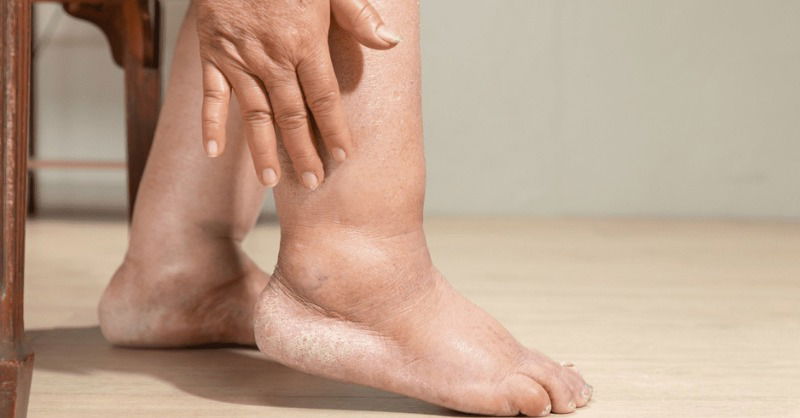If your ankles tend to swell by the end of the day, it may be more than just an annoyance—it could be your body signaling a deeper issue.
Experts from the Cleveland Clinic and Harvard Medical School note that ankle swelling—technically called peripheral edema—can result from simple lifestyle choices or more serious medical conditions. Identifying the underlying cause is crucial for effective treatment and prevention.
What Is Edema, and Why Do Ankles Swell?
Swelling in the ankles is typically caused by fluid accumulating in the body’s tissues, a condition known as edema.
Because of gravity, the feet and ankles are particularly vulnerable, especially after long periods of sitting or standing. In such cases, blood circulation slows, and the lymphatic system may struggle to remove excess fluid efficiently.
Common Causes of Swollen Ankles
1. Prolonged Sitting or Standing
Remaining in one position for too long, such as during long flights or extended desk work, can hinder blood flow, allowing it to pool in the lower legs.
2. Water Retention
Factors like high salt consumption, dehydration, or hormonal shifts can cause your body to hold onto fluid, especially in the lower limbs by day’s end.
3. Circulatory Issues
Conditions such as chronic venous insufficiency—when veins struggle to push blood back to the heart—can lead to swelling from blood pooling in the legs.
4. Heart or Kidney Disorders
Swelling in both ankles, accompanied by fatigue or rapid weight gain, may signal early signs of heart failure or kidney problems.
5. Medications
Certain medications, including corticosteroids, hormone therapies, antidepressants, and some blood pressure drugs, can cause swelling. Consult your doctor if symptoms appear after starting a new prescription.
When to Seek Medical Help

Be alert and consult a healthcare professional immediately if you notice:
- Sudden swelling in just one ankle
- Red, purple, or unusually warm skin
- Painful swelling
- Difficulty breathing or fever
- Unexpected, rapid weight gain
These may indicate serious concerns like blood clots (DVT), infections, or organ-related issues requiring urgent care.
Tips to Prevent and Reduce Swelling
To manage mild to moderate ankle swelling, consider the following strategies:
Elevate Your Legs: Prop your legs above heart level for 15–20 minutes to help fluids drain.
Hydrate Well: Drinking water supports proper fluid balance and helps flush out sodium.
Cut Back on Salt: Limit salty foods like processed snacks and canned goods.
Keep Moving: Avoid being sedentary—walk, stretch, or move your ankles regularly.
Use Compression Socks: These can improve circulation and prevent fluid buildup, especially helpful for those with varicose veins or poor circulation.
Natural Remedies to Try at Home
Though not a replacement for professional care, some home treatments may ease swelling:
- Soaking your feet in Epsom salt
- Gentle lymphatic drainage massage
- Applying cool compresses
Use these methods cautiously and only under the guidance of a healthcare provider.
The Importance of Proper Footwear
Wearing the wrong shoes can worsen ankle swelling. Tight, unsupportive footwear or high heels may restrict circulation.
Choose cushioned, supportive shoes and rotate between pairs if you’re on your feet all day.

When to Talk to a Doctor
Reach out to a medical professional if:
- The swelling doesn’t go away after rest
- It’s painful, discolored, or hot to the touch
- Only one ankle is affected
- You have other concerning symptoms
Doctors might recommend blood work, imaging tests, or evaluations of heart and kidney function to uncover the root cause.
Ongoing ankle swelling should never be ignored—it can be a sign of deeper vascular or organ issues.
Final Thoughts
Although ankle swelling is often harmless, it can sometimes point to more serious health concerns. Paying attention to changes in your feet and ankles can provide key clues about your overall well-being.
Before trying home remedies, consult with your doctor, because often, good health really does start from the ground up.





